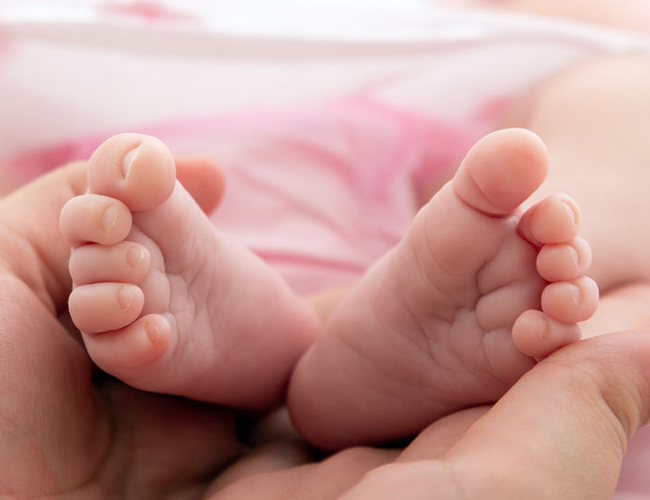Is your child getting enough sleep?
When you don't have a set sleep routine for baby, how does it impact your child's health and development?
Anyone who’s suffered a sleepless night knows the effects all too well – moodiness, fatigue, and lack of concentration, to mention a few. Sleep is extra important for babies and children, says Clicks regional clinic manager, Carol Gray. Because it directly impacts their mental and physical development, a lack of good sleep could have serious consequences.
“Sleep is not merely a restful state or downtime for the mind and body,” says Christiaan du Plessis, pharmacy manager at Clicks Pharmacy Kamma Crossing in Port Elizabeth. “Rather, it’s a second state where the body continues to function and the brain continues to process information. It is thought that a child actually continues to learn while asleep, as their brain replays the day’s events!
During healthy sleep various hormones are released that promote growth and healing. Healthy sleep also contributes to a healthy immune system, leading to better overall health.”
But whoever coined the term “sleeping like a baby” has obviously never spent much time around one, as night feeds, sleep regressions and midnight waking abound – and many of these disruptions occur with good reason. So to ensure your child is getting enough sleep to optimise their growth and development, it helps to know what you can expect at each age and stage.
Why sleep is so important for your child
“Sleep is the primary activity of the brain during early development,” explains Gray. “By the age of two, most children have spent more time asleep than awake and overall, a child will spend 40 percent of their childhood asleep.” Babies start off their lives needing a large amount of sleep, and as they grow their sleep requirements change and adapt according to their needs. Gray has the following age-by-age guidelines to help you.
How much sleep does your newborn need?
Sleep during the early months occurs around the clock and the sleep-wake cycle interacts with the need to be fed, changed and nurtured. Newborns sleep a total of 10.5 to 18 hours a day on an irregular schedule with periods of one to three hours spent awake. The sleep period may last a few minutes to several hours. By three to six months most infants have established a regular sleep-wake cycle.
Top tips for helping your newborn sleep
Observe baby’s sleep patterns and identify signs of sleepiness.
Put your baby in their crib when they are drowsy, but not yet asleep.
Place your baby to sleep on their back with face and head clear of blankets and other soft items. They should never be put to sleep on their tummy.
How much sleep does your baby need?
By six months of age, night-time feeds are usually no longer necessary. Many infants aged 4 to 11 months sleep through the night as a result, and 70 to 80 percent will do so by nine months of age. Infants of this age typically sleep nine to 12 hours during the night and have one to four naps a day that last anywhere between 30 minutes and two hours.
Top tips for helping your baby sleep
- Develop regular daytime and bedtime schedules
- Create a consistent and enjoyable bedtime routine, such as a bath and bedtime story
- Establish a regular “sleep-friendly” environment
- Encourage your baby to fall asleep independently by using a comfort object, like a “doodoo blanky”
How much sleep does your toddler need?
Toddlers aged between one to two years need about 11 to 14 hours of sleep in a 24-hour period. When they reach about 18 months of age their nap times will decrease to once a day, lasting one to three hours.
Top tips for helping your toddler sleep
- Maintain a daily sleep schedule and consistent bedtime routine
- Keep the bedroom environment the same every night and throughout the night
- Set limits that are consistent. Encourage use of a security object, such as a blanket or stuffed animal
How much sleep should your preschooler get?
Preschoolers aged 3 to 5 years typically sleep 11 to 13 hours each night and most do not have daytime naps after five years of age.
Top tips for helping your pre-schooler sleep
- Maintain a consistent sleep schedule
- Have a relaxing bedtime routine that ends in the room where the child sleeps
- Your child should sleep in the same environment every night, and it should be cool, quiet and dark – without a TV
What to do when sleep doesn't happen
The key to a good night’s rest is consistency. “A good bedtime routine is crucial. Also, sugary or caffeinated drinks should be avoided in general, but particularly around bedtime it’s vital that kids have no stimulating food or drink,” says Christiaan du Plessis, Clicks pharmacy manager. But sometimes things can derail, particularly over the holidays. In these cases, do your best to encourage some sort of routine.
“Decreasing anxiety and stress can help a child to relax enough so that they fall asleep. Products like Clicks Rescue Drops or Tibb Stress-Away syrup help children to calm down. Neither of these will lead to drowsiness, but they can promote healthy sleep by assisting in decreasing anxiety or stress,” adds Du Plessis. “If using the rescue drops, place five to 10 drops in a little water, and leave the solution to stand for a minute so the alcohol (that is used as a preservative) can evaporate.” And if you’re really struggling to get your little one to sleep, seek expert advice. As Du Plessis says: “Insomnia in children is often an indicator of an underlying problem and should immediately be referred to a doctor.”
IMAGE CREDIT: 123rf.com



